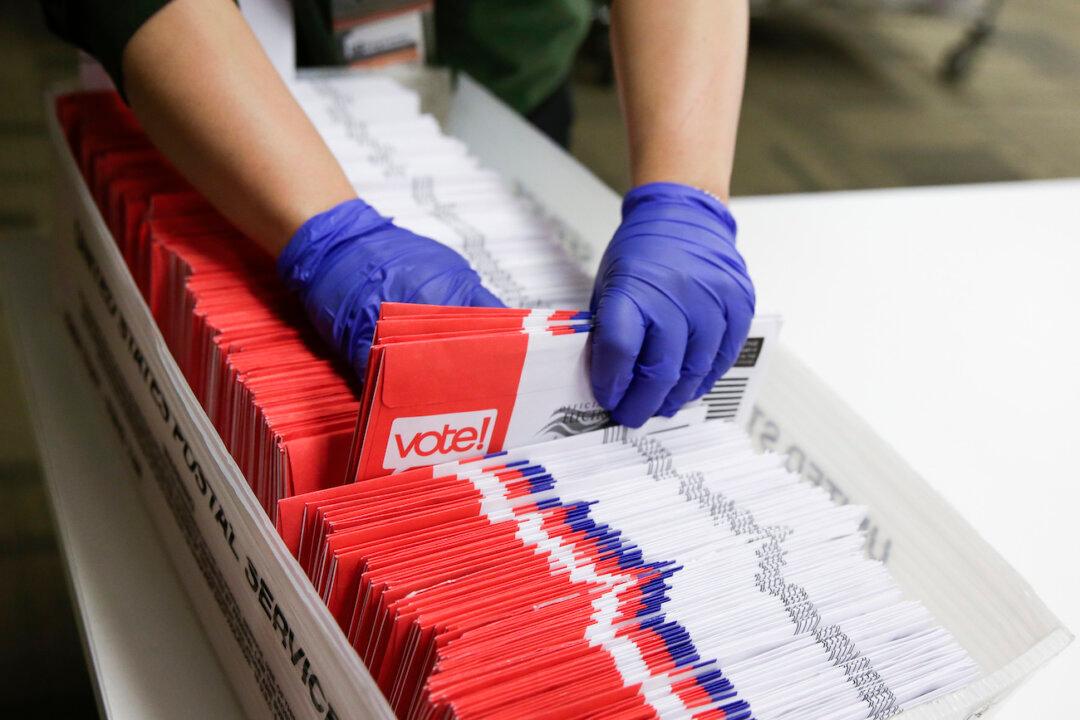An Indiana law set to take effect on July 1 will ensure that mail-in voting is “as secure as voting in person,” according to the legislation’s author.
Voters in Indiana currently have to show photo identification if they vote in person but don’t need to present any such ID if they apply for an absentee by mail ballot.




